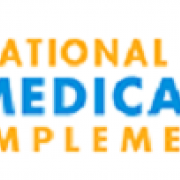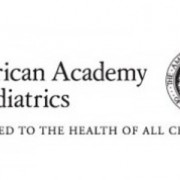You are looking at an archived version of our site. Please visit thepcc.org for a fresh, new experience!
Care Coordination & Integration
In order to have an effective healthcare system that is patient centered, care coordination is inherent. This involves significant communication between health professionals, to ensure that quality care is consistently provided to patients. In addition, as care teams strive to make primary care the center for all of a patient’s general needs, further integration may be necessary. With primary care serving as the “hub” for most patients, incorporating facets of other fields is not only plausible but an obvious next step for better coordination.
The PCC has consistently acknowledged the need for an increase in care coordination, and further integration of other fields, such as oral health and behavioral health. The PCC has shown a commitment to further primary care integration by creating the Primary Care and Behavioral Health Integration Workgroup and participating in grants centered around increasing the visibility of oral health in the primary care space.
Resources

American Academy of Pediatrics | March 2016

The Patient-Centered Medical Home's Impact on Cost and Quality: Annual Review of Evidence, 2014-2015
Patient-Centered Primary Care Collaborative | February 2016

American Academy of Pediatrics | January 2016

American Psychological Association | November 2015

Pediatric Medical Home Infographic-Pediatrics is Changing | November 2015

Pediatric Medical Home Infographic-Responding to Change | November 2015

American Journal of Managed Care | September 2015
This study looks at the impact that the utilization of comprehensive care coordinators (CCCs) in primary care settings has on emergency department use. They found that CCCs effectively reduced ED use and could be used as a cost-effective and scalable method of care coordination.
- ‹ précédent
- 6 of 34
- suivant ›
News
August 10, 2020 | Wall Street Journal
July 24, 2020 | Primary Care Collaborative
June 24, 2020 | Primary Care Collaborative
March 26, 2020 | Families USA
- ‹ précédent
- 6 of 90
- suivant ›
Events & Media
March 2, 2020
October 2, 2019 | PCPCC
- ‹ précédent
- 6 of 73
- suivant ›
Related Content
Pagine
| Titolo | Source | Date |
|---|---|---|
| North Dakota doesn’t have enough psychiatrists. Telemedicine is helping to fix that | STAT | March 28, 2019 |
| Telehealth in primary care risks fragmentation of patient info | Health Data Management | March 21, 2019 |
| Should behavioral health patients be able to get treatment in primary care settings? Elnahal says, ‘Yes’ | ROI New Jersey | March 20, 2019 |
| Standardizing Social Determinants Of Health Assessments | Health Affairs Blog | March 18, 2019 |
| Patients as Consumers | Health Affairs | March 5, 2019 |
| District will no longer guarantee ambulance rides for nonserious patients | Washington Post | March 1, 2019 |
| A Proposal To Support ACOs With Crucial Analytics | Health Affairs Blog | March 1, 2019 |
| The Oversell And Undersell Of Digital Health | Health Affairs Blog | February 27, 2019 |
| Lonely? Anxious? Depressed? Maybe Your Dentist Can Help | Kaiser Health News | February 27, 2019 |
| The Shared Principles of Primary Care: A Multistakeholder Initiative to Find a Common Voice | Family Medicine | February 27, 2019 |
Pagine
Pagine
Associated Stakeholders:
Secondary menu
Copyright © 2024 Primary Care Collaborative











